64 Vitamin A Rich Foods for Vegetarians and vegans
Plant based sources of Vitamin A
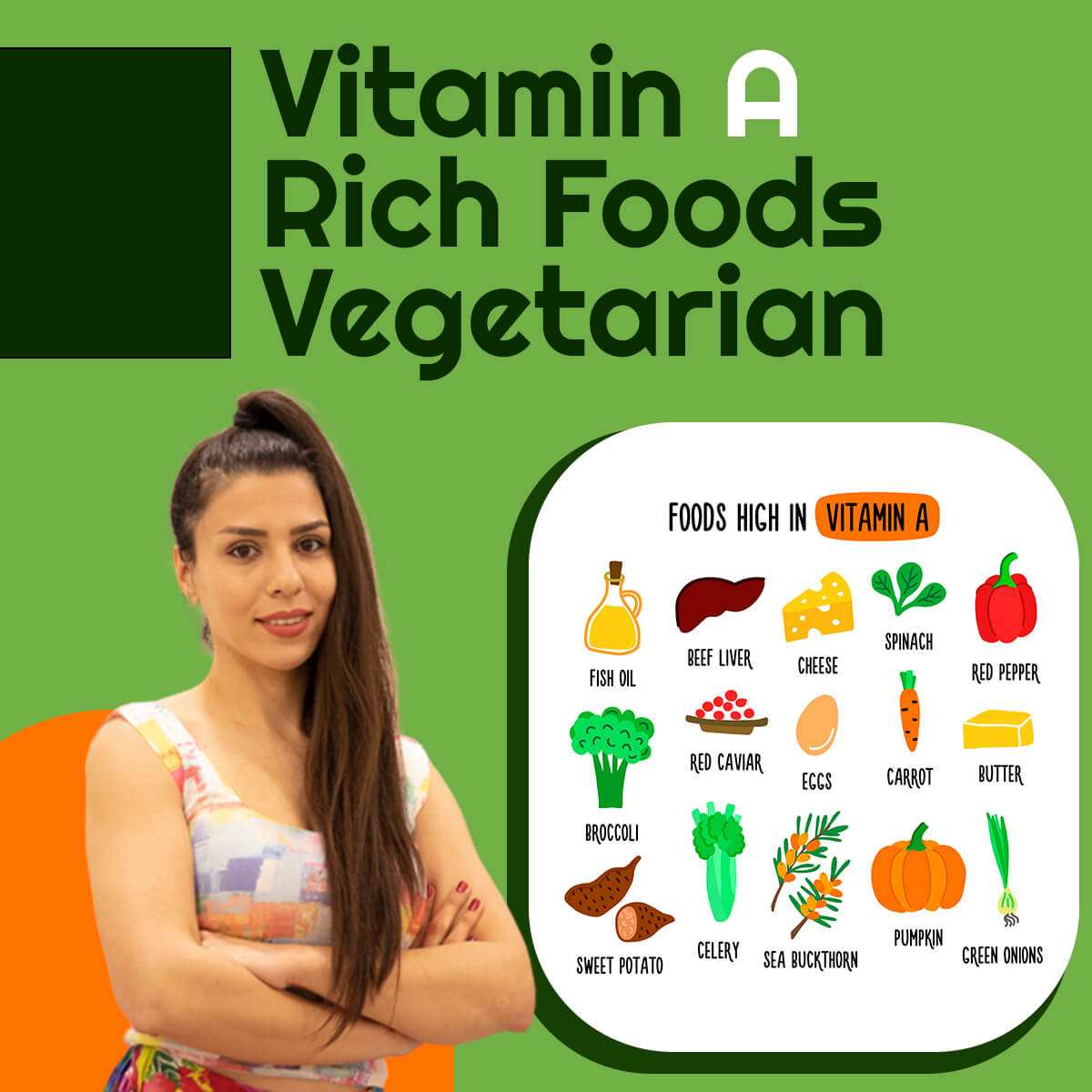
Vitamin A plays a crucial role in maintaining good vision, immune system health, cell growth, and normal development. The human body is able to produce only small amounts of retinol, so it’s important to eat enough foods that are rich in beta-carotene and other carotenoids or seeds that act as an alternative source of vitamin A. Some natural sources of vitamin A and beta-carotene include yellow vegetables like corn, carrots and pumpkins. Once converted by the body into vitamin A, these carotenoids are stored in liver and adipose tissue for future use or transported to other tissues where they can be used for cellular growth and repair.
With the right knowledge, you can easily incorporate more veggies into your diet so that you get more vitamins and minerals than ever before.
In this article, I will review sources rich in plant vitamin A and prove to you that with a varied and planned plant diet, you can provide all the vitamins and minerals your body needs.
Join me and learn more about plant-based vitamin A sources!
In this article you will read:
How does a healthy vegan diet provide you with the vitamin A you need?
Vitamin A is one of the eight essential nutrients required by the body for normal metabolism and health. We are able to obtain vitamin A from two sources: provitamin carotenoids found in yellow-orange fruits and vegetables, and preformed vitamin A, which is found in dairy products, meat and fish.
As stated in the “What is Veganism ” article, vegans and vegetarians avoid eating animal meat for health, ethical, and environmental reasons, so vegetarians will get the vitamin A they need from plant sources.
The body uses vitamin A to produce sex hormones, promote growth, maintain skin and mucous membranes, and support immune function. The amount of vitamin A in food depends on the presence of carotenoids, which are naturally found in many fruits and vegetables. Vitamin A is important for your health, especially if you are a vegan. Vitamin A is important for your immune system, vision, growth, and healthy skin and mucous membranes.
You can get vitamin A from foods like carrots, sweet potatoes, squash, cantaloupe, mango, papaya, kale and collard greens.
What plant foods are rich in vitamin A?
Vitamin A rich foods include carrots, pumpkins and sweet potatoes, but it’s also found in fortified cereals, orange juice and milk. Fortified orange juice is commonly sold as a vitamin A supplement, but the amount of beta-carotene is relatively low, so it may not provide enough vitamin A for vegans and vegetarians.
Complete guide to vitamin A in a plant-based diet
As I have mentioned above ,Vitamin A is a group of fat-soluble compounds that are essential to human health.
Vitamin A is essential for vision and growth. It supports the immune system and helps maintain healthy skin and mucous membranes. It is also important for maintaining bone health as it helps build and maintain healthy bones. Vitamin A may also have some effects on mood and sleep.
A number of studies have shown that vitamin A has potential benefits for improving cardiovascular health. It may reduce the risk of heart disease by improving cholesterol levels, blood pressure and blood vessel function. It may also help lower blood pressure in people with prehypertension or stage 1 hypertension. In addition, vitamin A may be helpful for reducing inflammation in people with rheumatoid arthritis and inflammatory bowel disease.
Vitamin A plays an important role in cell differentiation, reproduction, growth and maintenance of the eye and skin.
It is essential for vision and growth; it supports the immune system; it helps maintain healthy skin, mucous membranes; it may have some effects on mood and sleep.
Vitamin A can be found in a wide variety of plant-Based foods
In the continuation , I have published a complete list of plant sources from which you can absorb the vitamin A your body needs.
This list is arranged based on the highest amount of vitamin A and includes a wide range of vegetables, fruits, nuts, beans, and lentils.
If you want to know how vegans get vitamin A and beta-carotene, stay with me until the end of this article.
Note :
3000IU Vitamin A, IU = 100% DV
900mcg Vitamin A, RAE = 100% DV

26 Fruits Highest in Vitamin A, IU
| Row | Fruits rich in Vitamin A | Vitamin A mg/kg) |
| 1 | Goji Berries | 26822IU (894% DV) |
| 2 | Apricots | 12669IU (422% DV) |
| 3 | Cantaloupe Melons | 3382IU (113% DV) |
| 4 | Peaches | 2163IU (72% DV) |
| 5 | Apricots | 1926IU (64% DV) |
| 6 | Melon Balls | 1774IU (59% DV) |
| 7 | Prunes | 1762IU (59% DV) |
| 8 | Fuyu Persimmon | 1627IU (54% DV) |
| 9 | Loquats | 1528IU (51% DV) |
| 10 | Mango | 1343IU (45% DV) |
| 11 | Yellow Plantains | 1318IU (44% DV) |
| 12 | Sour Red Cherries | 1283IU (43% DV) |
| 13 | Pink Grapefruit | 1150IU (38% DV) |
| 14 | Plantains | 1127IU (38% DV) |
| 15 | Mangos | 1082IU (36% DV) |
| 16 | Papaya | 950IU (32% DV) |
| 17 | Grapefruit | 927IU (31% DV) |
| 18 | Oheloberries | 830IU (28% DV) |
| 19 | Prunes | 781IU (26% DV) |
| 20 | Groundcherries | 720IU (24% DV) |
| 21 | Tangerines | 681IU (23% DV) |
| 22 | Guavas | 624IU (21% DV) |
| 23 | Elderberries | 600IU (20% DV) |
| 24 | Watermelon | 569IU (19% DV) |
| 25 | Green Olives | 393IU (13% DV) |
| 26 | Plums | 345IU (12% DV) |
source : myfooddata
Fruits Highest in Vitamin A, RAE
- Cantaloupe Melons- 169mcg (19% DV)
- Peaches – 108mcg (12% DV)
- Apricots – 96mcg (11% DV)
- Melon Balls – 89mcg (10% DV)
- Prunes – 88mcg (10% DV)
27 Vegetables Highest in Vitamin A
| Row | Vegetables rich in Vitamin A | Vitamin A mg/kg) |
| 1 | Chives | 3415mcg (379% DV) |
| 2 | Pasilla Peppers | 1788mcg (199% DV) |
| 3 | Hot Chile Peppers | 1324mcg (147% DV) |
| 4 | Ancho Peppers | 1022mcg (114% DV) |
| 5 | Sweet Potatoes | 961mcg (107% DV) |
| 6 | Carrots | 835mcg (93% DV) |
| 7 | Pumpkin | 778mcg (86% DV) |
| 8 | Mustard Greens | 618mcg (69% DV) |
| 9 | Turnip Greens | 579mcg (64% DV) |
| 10 | Butternut Squash | 532mcg (59% DV) |
| 11 | Spinach | 469mcg (52% DV) |
| 12 | Romaine Lettuce | 436mcg (48% DV) |
| 13 | Parsley | 421mcg (47% DV) |
| 14 | Vinespinach | 400mcg (44% DV) |
| 15 | Beet Greens | 383mcg (43% DV) |
| 16 | Turnip Greens | 381mcg (42% DV) |
| 17 | Red Leaf Lettuce | 375mcg (42% DV) |
| 18 | Green Leaf Lettuce | 370mcg (41% DV) |
| 19 | Garden Cress | 346mcg (38% DV) |
| 20 | Dandelion Greens | 342mcg (38% DV) |
| 21 | Cilantro | 337mcg (37% DV) |
| 22 | Hubbard Squash | 335mcg (37% DV) |
| 23 | Beet Greens | 316mcg (35% DV) |
| 24 | Swamp Cabbage | 315mcg (35% DV) |
| 25 | Swiss Chard | 306mcg (34% DV) |
| 26 | Pumpkin | 288mcg (32% DV) |
| 27 | Chicory Greens | 286mcg (32% DV) |
source : myfooddata
6 Nuts and Seeds rich in Vitamin A
- Ginko Nuts – 558IU (19% DV) in 1 oz
- Pistachio Nuts – 516IU (17% DV) in 1 oz (49 kernels)
- Chinese Chestnuts – 328IU (11% DV) in 1 oz
- Dry Roasted Pistachio Nuts – 266IU (9% DV) in 1 oz (49 kernels)
- Breadfruit Nuts (Seeds) – 238IU (8% DV) in 1 oz
- Chinese Chestnuts – 202IU (7% DV) in 1 oz
Margarine oil, one of the best fats, has the highest vitamin A, IU for vegetarians – there are 3,577IU of vitamin A (119% DV) per 100 grams of margarine.
Beans and lentils rich in vitamin A
- Fortified Silken Tofu – 1913IU (64% DV) in 1/5 package
- Blackeyed Peas – 791IU (26% DV) in 1 cup
- Canned Chili With Beans – 337IU (11% DV) in 1 cup
- Fava Beans (Raw) – 333IU (11% DV) in 1 cup
- Edamame – 298IU (10% DV) in 1 cup
Vitamin A deficiency symptoms and care for vegetarians
Vitamin A deficiency is a serious public health problem. Signs of vitamin A deficiency include eye problems (such as dryness, itching, and swelling), growth problems (such as stunted growth and delayed puberty in children), increased susceptibility to some infections (such as respiratory infections), increased blood pressure, increased blood cholesterol levels, impaired fertility (in women), and increased susceptibility to cancer. You can easily spot signs of a vitamin A deficiency by looking for yellowish eye colour, dark, dry and swollen eyes, sores on the lips, hands and feet, and a poor immune system.
The best way to prevent vitamin A deficiency is to get sufficient beta-carotene from foods such as sweet potatoes, orange carrots, pumpkin, winter squash and yellow fruits like cantaloupe, mango, papaya and apricots. Food suppliers can help you make sure you’re getting enough beta-carotene. You can also take a vitamin A supplement if you’re not getting enough beta-carotene from your diet.

Fortification Strategies for Vegans and Vegetarians
The nutrient content of foods may vary based on growing conditions, production methods, and characteristics of the particular produce. This could make it hard for a vegan diet to get the amounts of vitamins and nutrients the body needs. This is why many dietitians recommend taking a vitamin supplement to get the recommended daily amounts of vitamins and minerals. Unfortunately, this is not an option for vegans because it contains animal ingredients. There are many fortified foods on the market that are vegan friendly, so you don’t have to worry about missing out on vital nutrients. You can also grow your own vegetables, fruits, and herbs at home. Many vegetables and fruits are rich in vitamin A. You can also try certain medicinal plants for extra vitamin A. You can find more information about how to grow your own food and get vitamin A on the National Health and Medical Research Council website.
Plant-Based Foods Rich in Vitamin A Summary
Vitamin A rich foods include carrots, sweet potatoes and pumpkins. Beta-carotene is a pigment found in foods like carrots, sweet potatoes and pumpkins.
Vitamin A is required for the maintenance of healthy eyes, skin and mucous membranes, and immune function. It’s also important for healthy growth and development in children.
A plant-based diet can provide your body with the vitamin A you need by eating fruits, vegetables, nuts, seeds, and legumes.
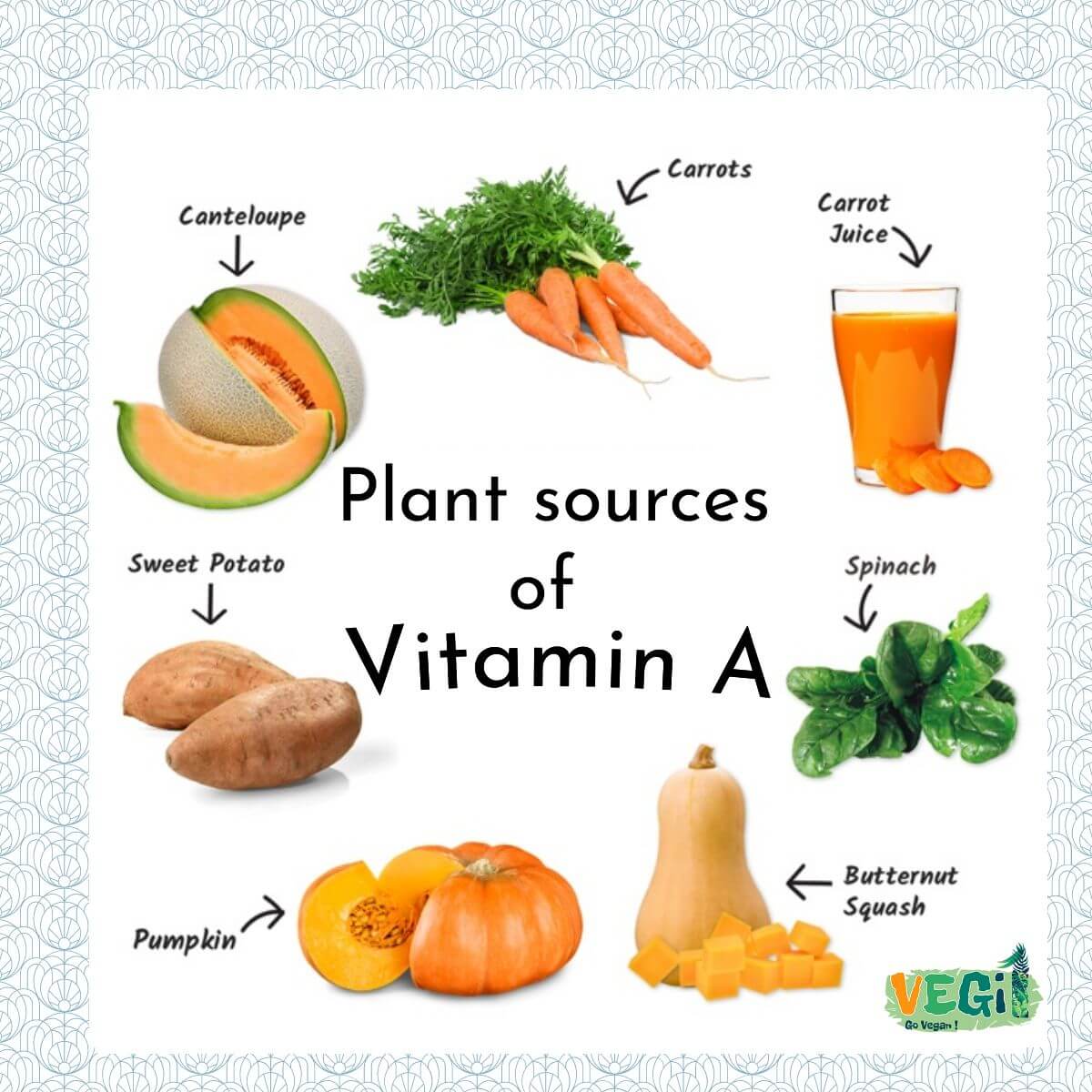
Summary
The human body is able to produce only small amounts of retinol, so it’s important to eat enough foods that are rich in beta-carotene and other carotenoids or seeds that act as an alternative source of vitamin A.
In this article, I tried to give you complete information about plant sources containing vitamin A and beta-carotene
Some natural sources of beta-carotene include yellow vegetables like corn, carrots and pumpkins. Once converted by the body into vitamin A, these carotenoids are stored in liver and adipose tissue for future use or transported to other tissues where they can be used for cellular growth and repair. Vitamin A rich foods include carrots, sweet potatoes and pumpkins.
I will update this “Vitamin A Rich Foods for Vegetarians” article based on your feedback and comments and try to provide you with more complete information about plant vitamin A sources for vegans and vegetarians.
So write to me in the comments, do you have vitamin A deficiency? How do you supply your body with vitamin A? Do you take supplements?


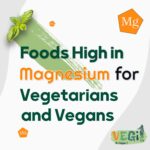
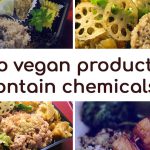
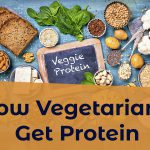


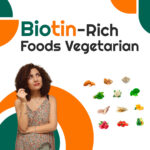
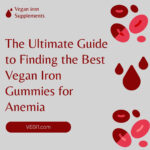
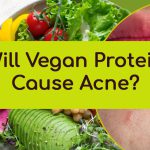

I’m going to bookmark this blog post so that I can refer back to it later. It’s a great resource for anyone looking to learn more about vitamin A and how to get it from plant-based foods.
I’m so glad that I found this blog post. It’s been a huge help in planning my meals and making sure that I’m getting enough vitamin A. I’m feeling more energized and my skin is looking great!